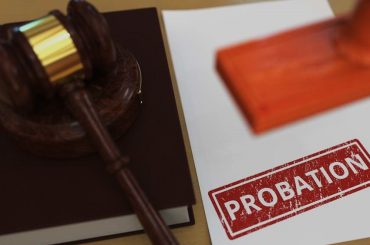Restitution Calculation is typically calculated by adding up the financial losses incurred by a victim due to a crime. This amount generally covers:
- Property damage,
- Medical expenses,
- Lost income,
- Other related costs.
It’s important to note, however, that restitution often does not include compensation for pain and suffering or legal expenses. Usually, the requirement to pay restitution is set as a condition of the defendant’s probation.
How is recovery calculated in a criminal case?
In criminal cases, restitution is determined based on the direct financial losses suffered by the victim due to the crime. Commonly covered losses include:
- Medical Expenses: Covering everything from emergency care to physical therapy and ongoing rehabilitation.
- Counseling Costs: This can extend to the victim’s family members.
- Lost Wages: Compensation for time off work due to the crime.
- Property Damage: Costs to repair or replace damaged property.
- Relocation Expenses: If moving is necessary for safety reasons, such as in cases of domestic violence.
- Funeral Expenses: If applicable, when the crime has resulted in death.
- Miscellaneous Out-of-Pocket Costs: Such as increased insurance premiums, credit monitoring services, or modifications needed to accommodate disabilities caused by the crime.
Additionally, some states, like California, permit victims to recover reasonable attorneys’ fees associated with collecting court-ordered restitution. Furthermore, future expenses anticipated post-sentencing, such as for medical care or counseling, and any accumulated interest on unpaid restitution may also be recoverable.
Victims are required to substantiate their economic losses to the prosecutor, typically by providing documentation like medical and repair bills, receipts for replaced property, and evidence of lost wages such as pay stubs and timesheets. This evidence is often part of the victim impact statement.
Restitution is generally mandated to cover the full extent of losses directly resulting from the defendant’s actions, proven by a preponderance of the evidence—a lower standard than in the criminal trial itself.
If there are uncertainties about the total losses at sentencing, or if the defendant disputes the claimed amount, the court will schedule a restitution hearing. Here, the prosecutor presents evidence of losses, while the defense can argue against the validity or amount of the claims. The victim might testify during this hearing, and if unwilling or unable to appear in person, alternative arrangements can be made.
The court calculates and orders the restitution based on the evidence provided. In cases where an accurate restitution amount cannot immediately be established, some states allow judges to issue an order for restitution to be determined later. Should new information about the victim’s losses surface post-restitution order, adjustments to the order may be possible.
What losses are not subject to restitution payments?
In the context of victim restitution, certain types of losses are generally not compensable through restitution payments. These exclusions vary by state but commonly include:
- Physical Pain: Compensation for physical pain directly resulting from the crime is not typically recoverable.
- Emotional Distress: This includes the psychological impact of the crime on the victim.
- Mental Anguish and Suffering: Similar to emotional distress, this refers to the psychological pain and trauma caused by the crime.
- Loss of Enjoyment of Life: Compensation for the victim’s reduced quality of life post-crime is usually not covered.
- Loss of Consortium: This refers to the impact on the victim’s relationships and is typically not compensable through restitution.
- Legal or Accounting Expenses: Costs incurred for legal or accounting services related to the court cases are generally not subject to restitution.
These limitations reflect the scope of restitution, which is primarily focused on direct, out-of-pocket financial losses rather than more subjective or intangible harms.

What if the defendant accepts a plea deal and a charge is dismissed?
When a defendant agrees to a plea deal, restitution to the victim is frequently included as part of the agreement. However, the ability of prosecutors to alter the amount of restitution as part of the plea negotiations varies by state. For instance, in states like California, the law does not permit prosecutors to waive the victim’s right to restitution; therefore, they cannot negotiate to reduce the restitution amount as part of the plea deal.
Moreover, if a defendant pleads guilty to some charges in exchange for others being dismissed, courts in certain states may still require the defendant to pay restitution for the dismissed charges. In California, this is possible if the defendant agrees to a “Harvey Waiver,” which allows the court to order restitution related to the facts of the dismissed charges as part of the sentencing.
When does restitution get paid?
Restitution payment is typically a condition of the defendant’s probation, and judges have the flexibility to determine the payment method. They may require restitution to be paid either:
- In One Lump Sum: Where the defendant must pay the entire restitution amount at once.
- In Regular Installments: More commonly, defendants may be allowed to pay through a scheduled payment plan over a set period, often monthly, due to the common scenario of defendants lacking sufficient resources to pay all at once.
For victims who prefer not to interact directly with the defendant, arrangements can often be made for payments to be processed through the local probation department first. This setup can provide an additional layer of separation between the victim and the defendant.
Completing the payment of restitution is generally a requirement for the defendant to successfully conclude their probation term.
What happens if the defendant does not pay it?
If a defendant fails to pay restitution, several repercussions may follow. First, the victim can alert the district attorney’s office or the probation officer, since making restitution payments is typically a condition of the defendant’s probation. Failure to pay constitutes a violation of probation, which can lead to disciplinary actions including the potential revocation of probation and possible incarceration. Furthermore, non-payment can obstruct the defendant’s ability to expunge the criminal offense from their record.
Often, the inability to pay restitution is linked to the defendant’s financial circumstances. In such cases, the court may modify the terms of probation to require the defendant to secure employment as a means to fulfill their payment obligations.
In some states, such as California, if restitution remains unpaid, it can be converted into a civil judgment. This allows the victim to pursue the amount like any other civil debt, including options such as wage garnishment to recover the owed restitution.
Many states have victim services that feature compensation programs, providing an alternative means of restitution to support victims when defendants are unable to pay.




